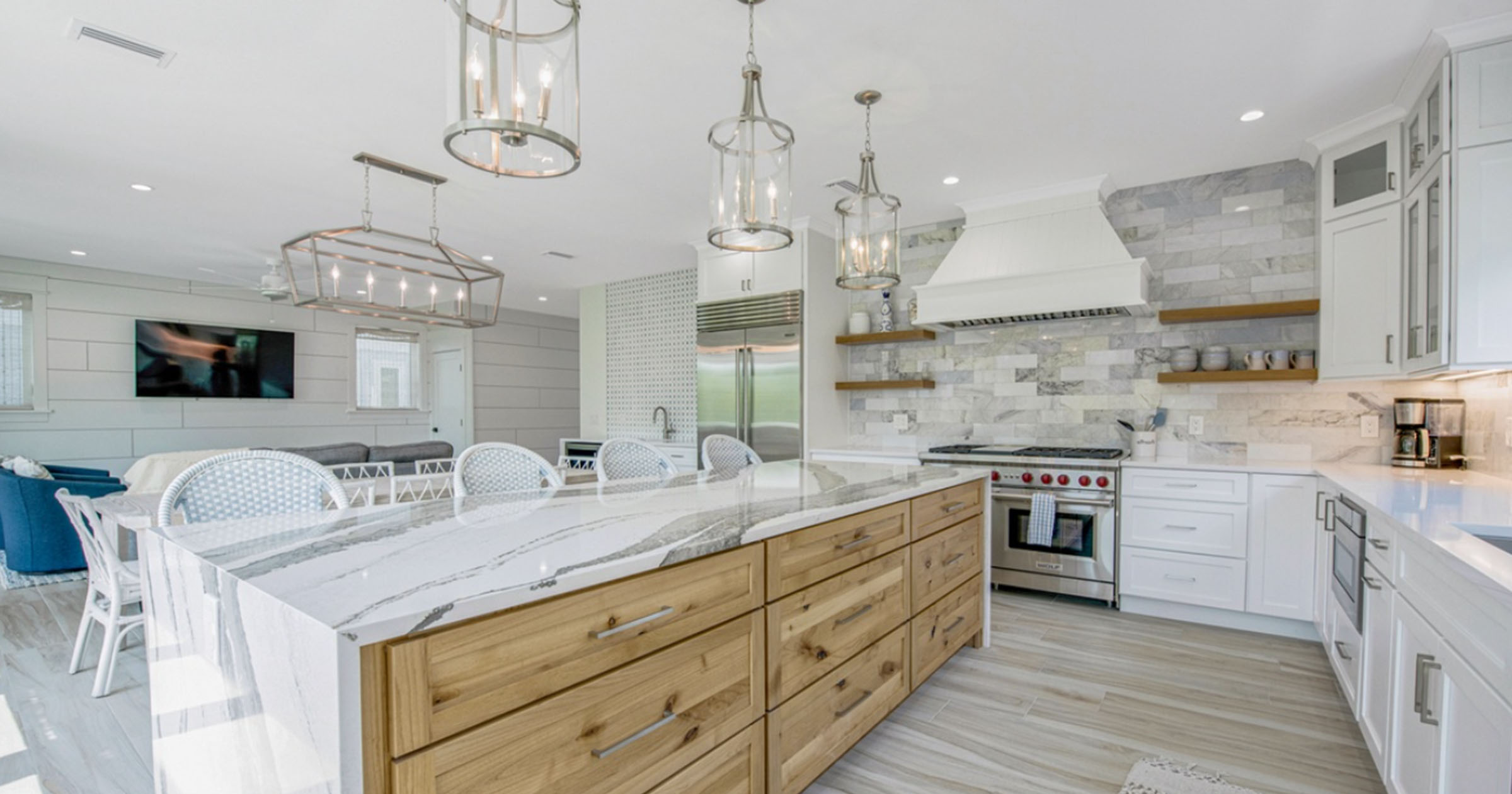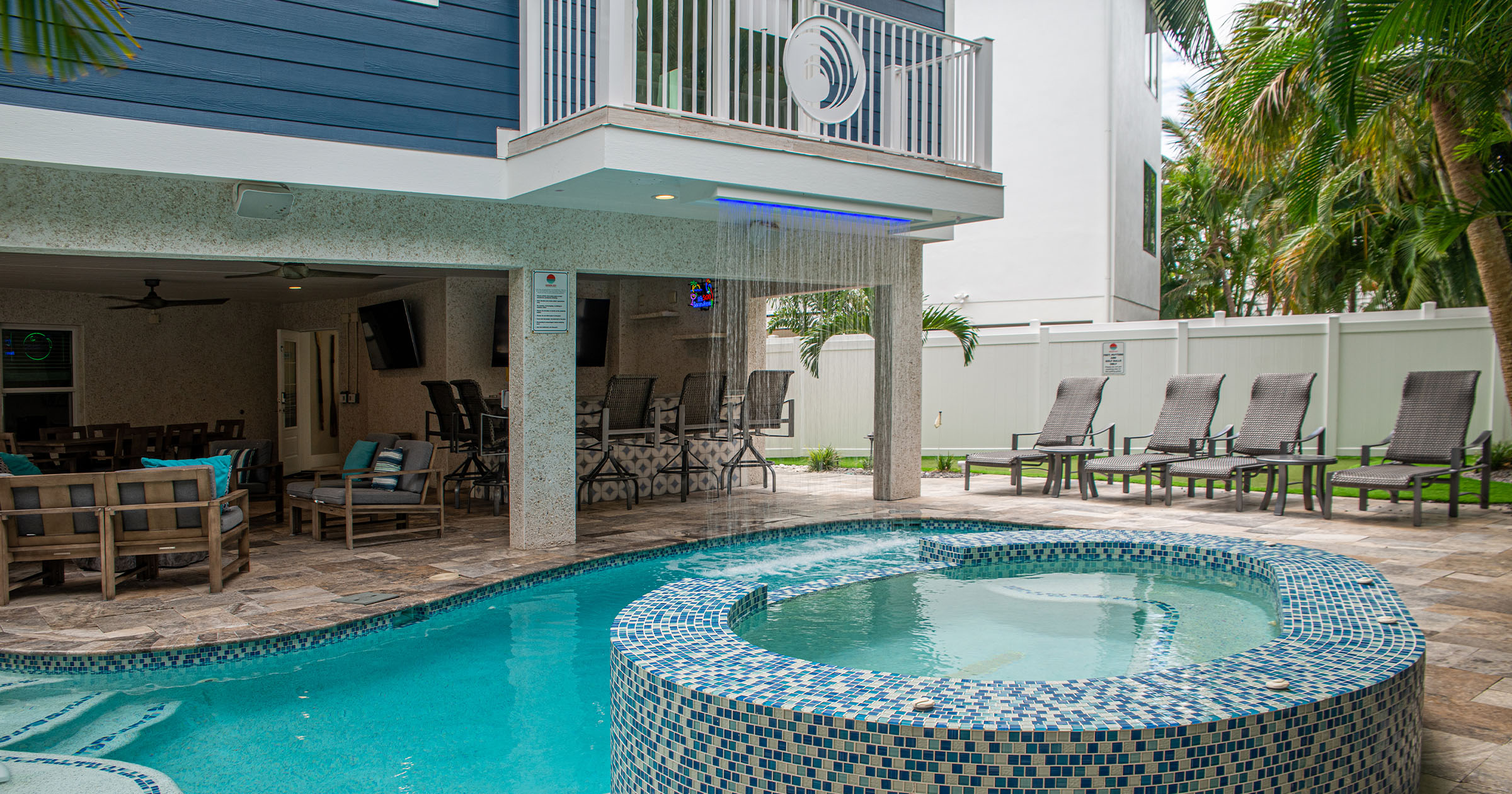
Coastal landscaping plays a crucial role in protecting homes along Florida’s Gulf Coast, especially in areas prone to erosion and flooding. Thoughtfully designed landscapes can help manage stormwater, prevent soil erosion, and protect your property from environmental damage. In this article, we’ll explore coastal landscaping strategies that blend aesthetics with functionality, ensuring your outdoor space remains beautiful and resilient.
Why Coastal Landscaping Matters
- Erosion Control:
- How It Works: Coastal areas often face erosion caused by wind, rain, and tides. Without proper landscaping, soil can be washed away, undermining the foundation of your home and other structures.
- Benefits: By using erosion-control techniques such as plantings and retaining walls, you can stabilize the soil and protect your property from damage. This also helps prevent sediment from being carried into waterways, improving environmental health.
- Stormwater Management:
- How It Works: Heavy rains and tropical storms can lead to flooding and water runoff. Coastal landscaping helps manage stormwater by slowing down the flow of water, allowing it to be absorbed into the ground.
- Benefits: Proper stormwater management reduces the risk of flooding, protects the foundation of your home, and helps recharge groundwater reserves, especially in Florida’s coastal regions where water management is crucial.
- Enhancing Property Value:
- How It Works: A well-designed coastal landscape improves the visual appeal of your property while also serving functional purposes like erosion control and stormwater management.
- Benefits: Coastal landscaping not only protects your home but also enhances its value and curb appeal, making it an investment in both aesthetics and long-term protection.
Key Coastal Landscaping Strategies
- Native Plants for Erosion Control:
- Why Use Native Plants: Native plants are naturally adapted to the Gulf Coast environment and are more resistant to the effects of erosion. They have deep root systems that stabilize the soil and hold it in place, even during heavy rains and windstorms.
- Top Choices: Sea oats, beach sunflower, and dune grasses are excellent options for coastal landscapes. These plants thrive in sandy soils and can tolerate salt spray, making them ideal for Florida’s coastal conditions.
- Design Tip: Plant native grasses and shrubs on slopes and along the edges of your property to prevent erosion. This also helps create a natural buffer zone between your home and the beach or other water bodies.
- Rain Gardens for Stormwater Management:
- How They Work: A rain garden is a shallow, planted depression designed to capture and absorb rainwater runoff from roofs, driveways, and other hard surfaces. These gardens filter and slow the flow of water, reducing the risk of flooding.
- Benefits: Rain gardens help manage stormwater, recharge groundwater, and provide a habitat for local wildlife. They are an eco-friendly way to prevent water damage to your home and reduce your environmental impact.
- Design Tip: Choose native plants that thrive in both wet and dry conditions, such as swamp milkweed and Florida native ferns, to create a low-maintenance, functional rain garden.
- Retaining Walls and Terracing:
- How They Work: Retaining walls and terraced landscaping are effective ways to control erosion on sloped properties. These structures hold back soil and slow water runoff, preventing erosion and helping stabilize the landscape.
- Materials: Use materials like natural stone, brick, or treated wood to build retaining walls. These materials blend seamlessly with the natural environment while providing the necessary support.
- Design Tip: Incorporate plantings along retaining walls to soften the look of the structure and further stabilize the soil. This creates a balanced design that is both functional and visually appealing.
- Permeable Paving for Stormwater Control:
- How It Works: Traditional pavement can cause water runoff, which contributes to flooding and erosion. Permeable paving materials, such as gravel, permeable concrete, or porous pavers, allow water to filter through the surface and into the ground.
- Benefits: Permeable paving reduces runoff, helps prevent flooding, and recharges groundwater, making it an eco-friendly option for driveways, walkways, and patios in coastal areas.
- Design Tip: Use permeable paving in high-traffic areas such as driveways or pathways. This functional solution not only helps with stormwater management but also complements the aesthetic of your coastal landscape.
Maintaining Coastal Landscapes
- Regular Pruning and Trimming:
- How It Works: Coastal plants can grow quickly due to Florida’s warm climate. Regularly pruning and trimming shrubs, trees, and grasses help maintain a neat appearance while ensuring that plant roots continue to effectively control erosion.
- Benefits: Proper maintenance keeps your landscape healthy and functional, ensuring that it continues to protect your property from environmental threats.
- Mulching:
- How It Works: Applying a layer of mulch around plants helps retain moisture, regulate soil temperature, and prevent soil erosion. Mulching is especially important in coastal environments, where dry, sandy soils can lose moisture quickly.
- Benefits: Mulching reduces water usage, enhances plant health, and adds a polished look to your landscape.
- Inspecting for Damage After Storms:
- How It Works: After heavy rains or tropical storms, inspect your coastal landscaping for signs of erosion, water damage, or plant loss. Make necessary repairs to retaining walls, replace damaged plants, and replenish any washed-away soil.
- Benefits: Regular inspections ensure that your landscape remains effective at controlling erosion and managing stormwater, protecting your home from further damage.
Coastal landscaping plays an essential role in protecting homes from erosion and stormwater runoff, especially in Florida’s Gulf Coast region. By incorporating native plants, rain gardens, permeable paving, and retaining walls, you can create a landscape that is both beautiful and functional. Not only does coastal landscaping safeguard your property, but it also adds value and curb appeal to your home. JTL Homes specializes in building homes that seamlessly blend with the Gulf Coast environment, ensuring your home is not only stunning but also resilient against nature’s challenges.



